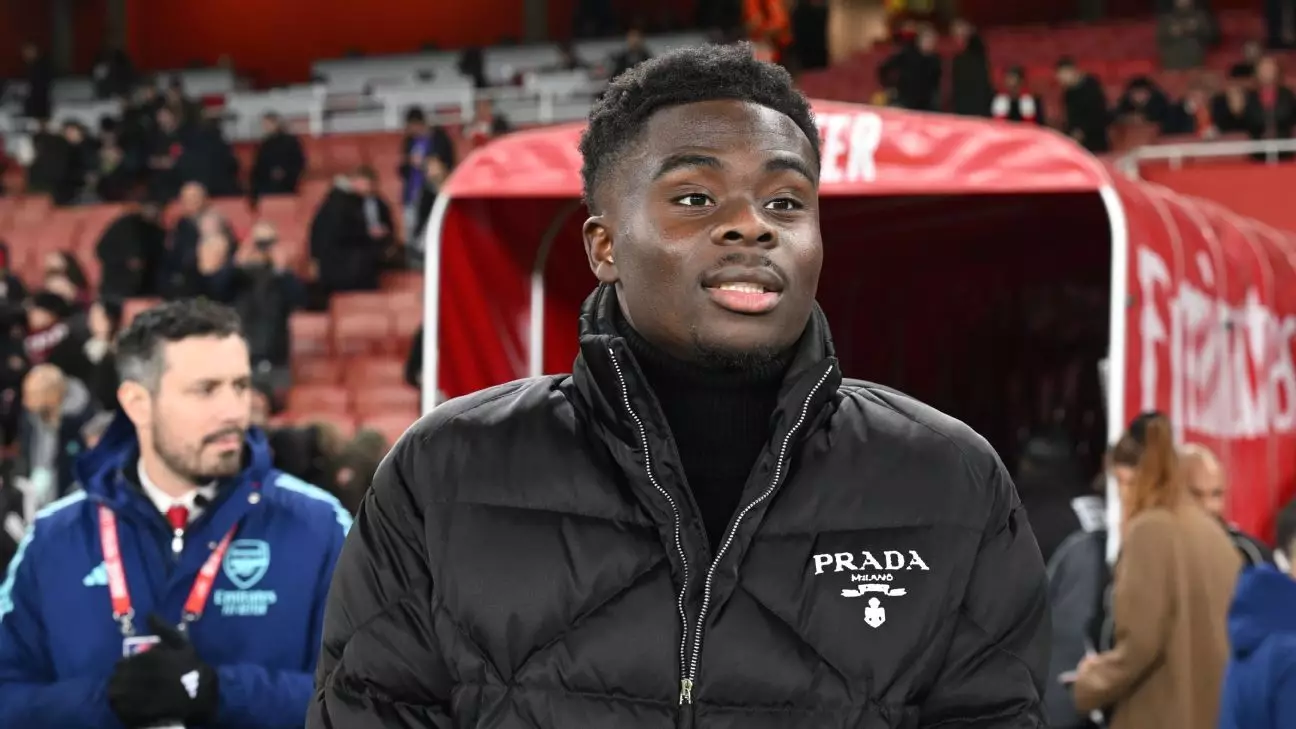In the world of professional sports, the balance between performance and recovery is crucial. Arsenal’s head coach, Mikel Arteta, recently emphasized the importance of rest for Bukayo Saka following a hamstring injury that has sidelined the young winger until March. Arteta’s insistence that Saka should take a break to refresh highlights not just physical healing, but also the mental rejuvenation that athletes require during recovery. While the hustle and grind of professional football often glorify endless training, it is critical for athletes to step back and allow both their bodies and minds to recuperate.
Saka’s absence has had noticeable consequences for Arsenal’s performance, illustrating the ripple effect one player’s injury can have on a team’s overall dynamics. Since Saka’s surgery, the club has faced challenges, including an early exit from the FA Cup and a difficult position in the Carabao Cup semifinal against Newcastle United. This situation serves as a reminder that while individual brilliance can elevate a team, the collective effort is equally important. Saka’s recent challenges, coupled with Gabriel Jesus’s ACL tear and injuries to defenders like Takehiro Tomiyasu and Ben White, paint a stark picture of how key players’ absences can disrupt team harmony and performance.
Arteta’s comments also underline the constructive aspects of rehabilitation. He suggests that Saka should take time off with family or alone for a “refresh,” emphasizing that recovery need not be a solitary or somber journey. Instead, it can be a positively charged experience where athletes embrace other aspects of life beyond football. This holistic approach to rehabilitation is vital; it encourages players to maintain their spirits and fosters a healthy mindset as they navigate through the recovery process. Saka, who has shown strong dedication by training daily with teammates, is encouraged to find balance in his regimen, reinforcing the idea that athletes are not merely machines but individuals with emotional needs.
As Saka embarks on his recovery journey, the importance of proactive management by coaches, physios, and support staff becomes evident. Arteta’s directive for Saka to engage in rehabilitation while taking time off illustrates a forward-thinking approach to player welfare. In sports, where the pressure to perform is immense and injuries can lead to significant setbacks, it becomes critical for clubs to prioritize the well-being of their players. With careful management, Saka can return not only in peak physical condition but also with a renewed sense of purpose and mental clarity.
Prioritizing recovery in professional sports should not merely be seen as a necessity for injury management; it is an opportunity for rejuvenation that can lead to enhanced performance in the long run. As Arsenal navigates this challenging phase, the focus must remain on supporting their injured players in every way possible, ensuring a stronger return for the team as a whole.

